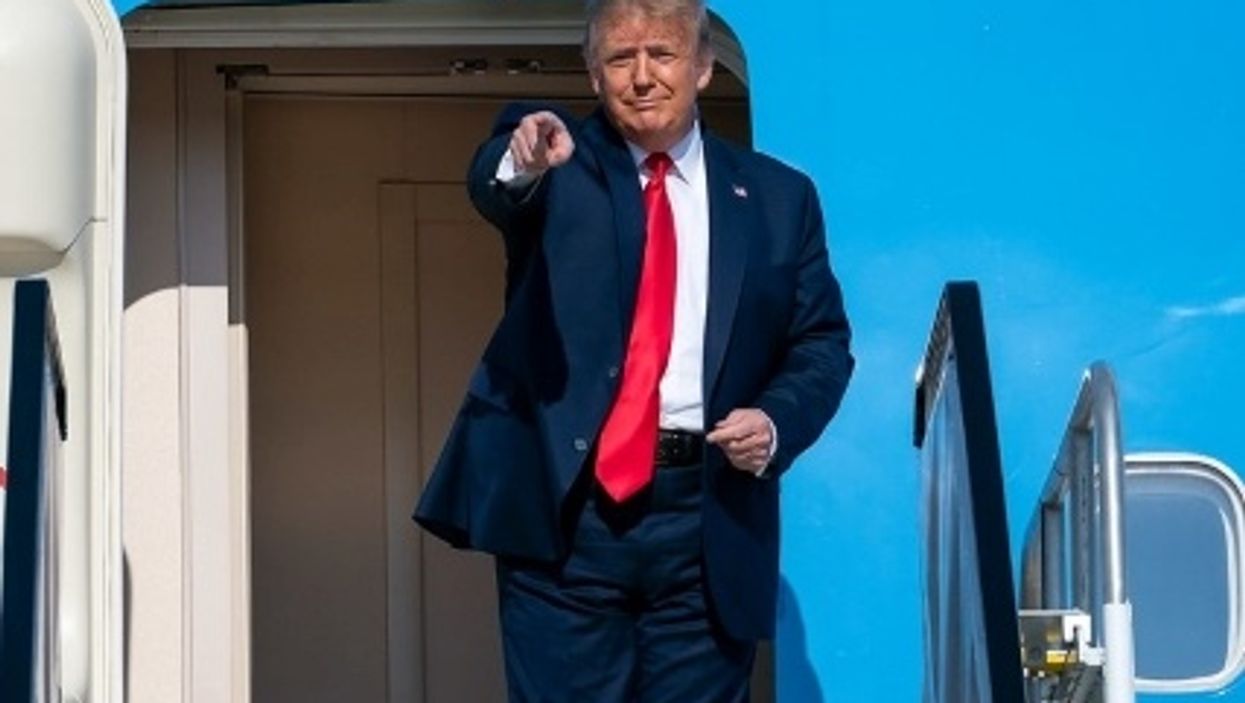Trump Is On A Slippery Exit Ramp
It's been another bad stretch for Donald Trump. The president's terrible, horrible, no-good, very bad week began with his labored shuffle down a short, modestly inclined ramp after giving an even more labored speech at West Point, one eliciting an audience response somewhere between tepid and silent. It was an event commandeered by Trump himself. He was trying to appear a wee bit presidential after having been hustled to his emergency bunker when peaceful protests across the street grew loud and his manly stride to a church to hold a bible as though it were kryptonite boomeranged.
Problem was, it looked an awful lot like a ramp too far; there are track meets that could have been held in the amount of time it seemed to take the president to get down that ramp. Coupled with his inability minutes earlier to raise a glass of water with one hand, this led to a fresh wave of doubt about his capacity, doubt which, to be fair, he has generated virtually nonstop since taking office. Characteristically, he made matters worse. "The ramp that I descended after my West Point commencement speech was very long & steep," he tweeted, "and most importantly was very slippery."
The thing is, lying just isn't as easy as it used to be, what with the advent of videotape. Everyone could see that the ramp was actually very short, not remotely steep and, unless it had been inexplicably slicked with Vaseline for the occasion, not at all slippery. Not since Jimmy Carter claimed to have used a canoe paddle to battle an amphibious attack rabbit to a draw had a presidential attempt at bravado seemed so pathetic.
Before you could say, "How did this guy get elected?" an ad was out that brutally contrasted a barely ambulatory Trump with footage of an athletic Joe Biden running through the White House with former President Barack Obama, finishing up by clinking glasses of ice water. The tag line: "Biden. He can run and drink water."
Rampgate wasn't even the week's low point for Trump. Former national security adviser John Bolton's account of his time observing the president hit bookstores, and his portrait of president-as-narcissistic-ignoramus was ugly though hardly groundbreaking. "I don't think he's fit for office," Bolton told ABC. "I don't think he has the competence to carry out the job." Bolton joined a list of Trump appointees who eventually abandoned ship after reaching the same conclusion about Trump. They include Trump's former secretary of state (Trump is "a moron"), chief of staff ("an idiot") and secretary of defense (Trump has "the understanding of a fifth or sixth grader"). Keen observers may be able to make out the barest outline of a pattern here.
Three years of corruption and chaos seem to have registered on American voters, who appear ready to ring the gong on The Trump Show and begin cleaning up. A Fox News poll last week showed Biden leading Trump by 12 points, in line with other polls. Other polls showed Trump's favorability ratings in the 30s. Barely a third of Americans believe what Trump says, and what those individuals are thinking is anybody's guess. Biden has begun to pull away from Trump in battleground states and establish solid leads in states he does not even need to win. States that should be layups for the president have turned into toss-ups, with polling there showing him and Biden essentially tied.
In the meantime, Biden raised more money in May than Trump, a surprising and telling development. And after Trump officials proclaimed that a million Americans had signed up for tickets to attend his kickoff rally in deep-red Oklahoma on Saturday night, only 6,200 showed up. There is an eternity to go before the election. But at this rate, the jig may be up for Donald Trump, and it is looking as though he knows it.
Jeff Robbins, a former assistant United States attorney and United States delegate to the United Nations Human Rights Council in Geneva, was chief counsel for the minority of the United States Senate Permanent Subcommittee on Investigations. An attorney specializing in the First Amendment, he is a longtime columnist for The Boston Herald, writing on politics, national security, human rights and the Mideast.




